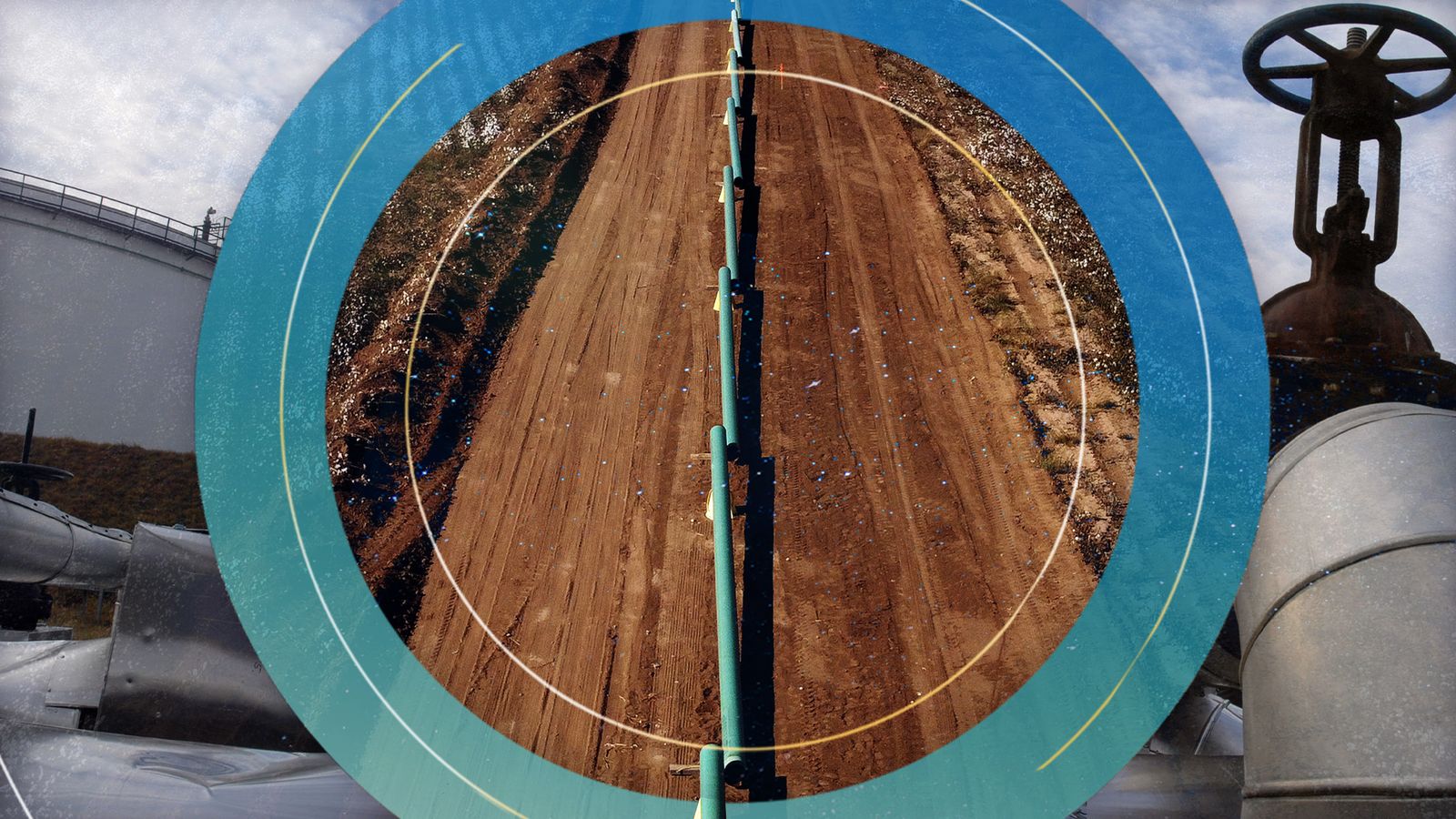The oil industry is developing more than 24,000km (15,000 miles) of new pipeline globally, a plan that is “dramatically at odds with efforts to limit global warming to 1.5C or 2.0C”, according to a new report.
The United States, India, China and Russia are leading the charge with the new infrastructure, which altogether would stretch nearly two-thirds of the way around the earth, according to new data from Global Energy Monitor (GEM).
GEM researcher Baird Langenbrunner accused those governments endorsing the pipelines of “an almost deliberate failure to meet climate goals”.
Under the Glasgow Climate Pact, signed at COP26 last year, almost all countries reaffirmed their commitment to limiting global heating to well below 2.0C (3.6F) and ideally 1.5C (2.7F) above pre-industrial levels.
GEM’s report said the industry enjoyed record profits in the last year, amid Russia’s war in Ukraine, and “is using this moment of chaos and crisis to push ahead with massive expansions of oil pipeline networks”.
Poor data transparency makes it difficult to measure the environmental impact of new oil pipelines, GEM said.
But of the 66% of pipelines for which GEM has data, the new capacity would add about 30 million barrels-per-day to world oil supply, potentially generating 4.61 billion tonnes of CO2 annually.
Labour accuses Tories of ‘energy disarmament’ and mocks ’19th century’ Jacob Rees-Mogg
Nearly half of UK’s offshore wind capacity owned by state-owned foreign entities, analysis shows
Hurricane Ian hurtling towards Florida as expert warns ‘this is no joke’
Building work on more than 10,000km of new pipeline has already begun. The full 24,166km of planned pipelines are expected to cost $75.4bn (£69.8bn), much of which risks becoming stranded assets as countries transition to renewables, the authors claim.
The Organization of the Petroleum Exporting Countries (OPEC) said in its latest report it expects oil demand to increase by 3.1 million barrels-per-day (bpd) in 2022 and by 2.7 million bpd in 2023.
The US and India are planning the most new pipeline, with each working on around 2,800km of new projects. China is close behind.
The UK is poised to issue more than 100 new licences for domestic oil and gas exploration, having already extended the Cambo field‘s licence, which environmentalists say is at odds with the country’s climate goals and risks locking it into fossil fuel infrastructure rather than transitioning faster to clean power.
The report shows “some of the world’s biggest consumers of fossil fuels are doubling down on oil, even as the climate crisis intensifies”, Mr Langenbrunner added.
Russia, enduring sanctions and fossil fuel boycotts by the EU and US over its war on Ukraine, is developing 2,051km of new pipelines costing an estimated $4bn, with an eye to replacing lost exports with new agreements with India and China.
Regionally, sub-Saharan Africa is the leading region for planned development, with 1,950km of oil pipelines under construction and an additional 4,540km proposed.
One project proposed for the region is the contentious East African Crude Oil Pipeline, which would funnel oil drilled from a national park in Uganda to a port in Tanzania, from where the oil will be sold internationally.
Critics say the pipeline will go through chimpanzee-inhabited forests and savannahs roamed by lions and elephants as well as impact people living nearby.
Watch the Daily Climate Show at 3.30pm Monday to Friday, and The Climate Show with Tom Heap on Saturday and Sunday at 3.30pm and 7.30pm.
All on Sky News, on the Sky News website and app, on YouTube and Twitter.
The show investigates how global warming is changing our landscape and highlights solutions to the crisis.








